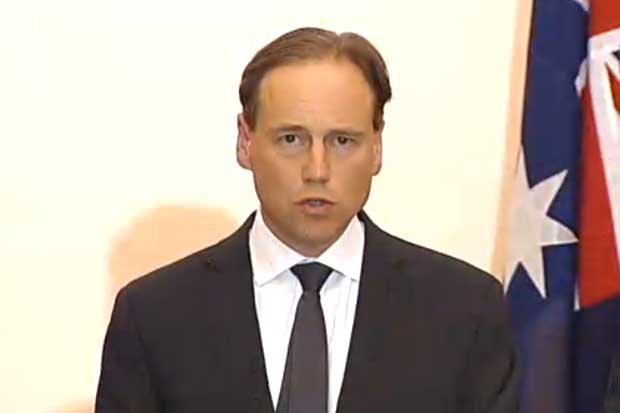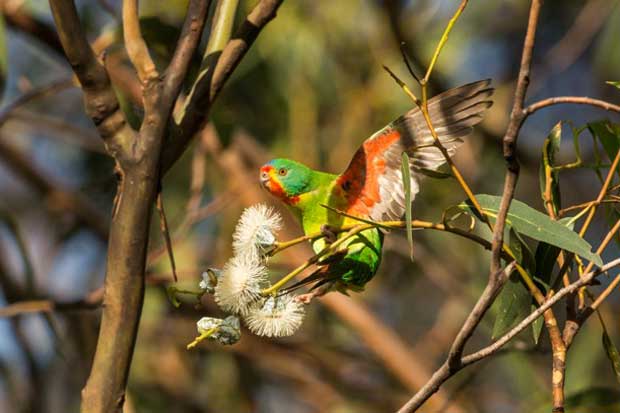The Tasmanian Environmental Defender’s Office has shot “big holes” in the federal government’s plans to pass off its environmental powers to the states and territories this week with the release of a new report analysing how the island state’s conservation safeguards stack up against the Commonwealth’s.
The public interest legal centre argues that Tasmanian laws are simply not stringent enough to match federal legislation which was introduced in 1999 partly out of recognition of inadequacies in state laws.
The Commonwealth’s omnibus conservation law, the Environment Protection and Biodiversity Conservation [EPBC] Act, is designed to protect ‘matters of national environmental significance’ such as threatened species, World Heritage Sites, internationally significant wetlands and the Great Barrier Reef.
It is essentially a top tier of environmental protection, triggered only where there is the potential for damage to nationally or internationally significant environments.
The Abbott government is attempting to pass off this responsibility, along with much of the federal Environment Minister’s powers, through its One Stop Shop proposal which would accredit states and territories to assess and approve the most environmentally risky developments.
The majority of environmental law specialists argue this can’t be done without a drop in conservation standards, with many claiming the proposal would effectively unwind 30 years of progress in environmental law.
This week’s report from the Tasmanian Environmental Defenders Office builds on an earlier audit by its national counterpart, the Australian Network of Environmental Defenders Offices, which in 2012 found “it is clear that no state or territory planning laws meet best practice standards for environmental assessment”.

Despite the criticisms, federal Environment Minister Greg Hunt maintains that the government’s proposal would not lower the conservation bar. Jess Feehely, the Primary Lawyer at EDO Tasmania, told New Matilda that’s simply not the case.
“Our strong conclusion is that the current [Tasmanian] legislation is not adequate to support the One Stop Shop,” she said.
“The big holes are really that there's no explicit obligation [under the One Stop Shop]to uphold requirements that the state government meet Australia’s international obligations.”
“I think, just structurally, the state legislation isn’t designed for that because that’s not the role the states play. The state legislation doesn’t require the government explicitly to ensure that World Heritage Convention obligations are met.”
In fact, there’s little obligation that the states’ laws reflect federal standards at all.
While the Commonwealth government has designed an ‘escalating’ system which allows it to intervene at various points in the assessment process if key standards are not being met, proposed amendments to the EPBC Act have been criticised for relying on states to report failures while not legally binding them to federal standards.
One of the critical federal benchmarks states aren’t obligated to legislate for is the ‘precautionary principle’ – the concept that a lack of scientific certainty should not act as a barrier to protecting important environments.
The Tasmanian EDO’s report notes that, because a range of UN treaties Australia has signed up to incorporate the precautionary principle, this too could put the federal government in breach of its international obligations.
On a more practical level, there’s also significantly less protection for endangered animals.
“From a threatened species point of view, there are number of species that aren’t listed under the state legislation that are under the federal law,” Feehely said. Threatened species could also be inadvertently impacted, she said, because Tasmanian law doesn’t afford the same protections as the EPBC Act: It protects the species, but not the habitat it relies on.

The commitment of the Tasmanian government to protecting threatened species was recently called into question when Environment Tasmania revealed that the state’s environment department had disregarded its own scientists’ advice and cleared breeding habitat critical to the endangered Swift Parrot’s survival.
Despite the fact other states and territories have been accused of similar negligence and legislative flaws, the One Stop Shop is already well on its way to being implemented.
Tasmania and most other states have already signed an ‘assessment bilateral’, which accredits states and territories to assess the risk of development adversely impacting on matters of national environmental significance.
In order to abrogate itself of its responsibilities though, the Commonwealth needs to amend the EPBC Act to allow the delegation of final approval powers through a separate round of bilateral agreements.
That component of the One Stop Shop has stalled in the Senate, but a previous deal between the Greens and the Palmer United Party to block the One Stop Shop has recently lost its force.
Last time the government moved to amend the EPBC Act, PUP had three Senators bound to vote against the reform. It now has one, and the numbers are far less certain.
It’s unclear when the government will reintroduce the bill to the upper house, but the window of opportunity is now open, and the federal Environment Minister is courting the crossbench, including Tasmanian Senator Jacqui Lambie.
The Tasmanian Environmental Defenders Office has sent a copy of the report to Lambie, and Feehely is seeking to meet with her to discuss the One Stop Shop.
Donate To New Matilda
New Matilda is a small, independent media outlet. We survive through reader contributions, and never losing a lawsuit. If you got something from this article, giving something back helps us to continue speaking truth to power. Every little bit counts.



